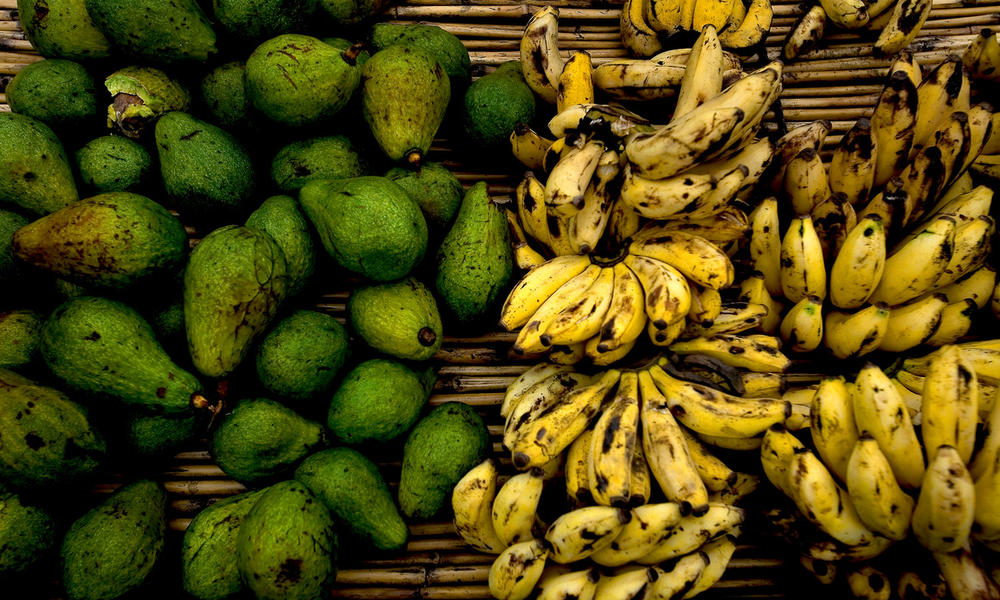Fries or chips are a real comfort food and wonderful treat, especially when you go to the effort of making them yourself at home.
When frying, keep the temperature no higher than medium and be careful not to let the oil smoke. When oil smokes and overheats, it changes its chemical composition, producing free radicals that can be harmful to the body.
If it does overheat, I’d recommend disposing of the oil after cooking. Let it cool, bottle it up and recycle it. But, kept to a good temperature, oil can be used again several times by filtering it using my simple method below.
I like to use sunflower or extra-virgin olive oil to cook my fries. Organic sunflower oil has a particularly interesting flavour, actually tasting of sunflower seeds. Extra-virgin olive oil tastes delicious too, but has a slightly lower smoke point of between 170C-200C. This just means it needs a little extra care to keep it from overheating. Although these oils cost a little more, a little thrift, and reusing them several times, will mitigate any extra costs.
Another great “zero waste” option is beef dripping, which is used by many of the best chip shops. To use beef dripping, filter and keep rendered fat from your roasts, until you have a sufficient quantity.
Home-cooked fries
Cut the potato into sticks of your desired thickness. Simmer in plenty of boiling water for five to 10 minutes, or until they begin to soften, then strain and leave to cool and dry.
Heat 4-5cm of oil in a deep pan. Test the temperature by dropping in one of the fries: if it bubbles and rises to the surface it’s ready. Add the fries in batches, so as not to overcrowd the pan, and cook for three to six minutes, or until golden brown. Remove with a slotted spoon on to kitchen towel and season with sea salt.
To save and reuse the oil, let it cool completely, strain it through a fine sieve and cheese cloth into a container and store in a cool, dark place.
Source: The Guardian

